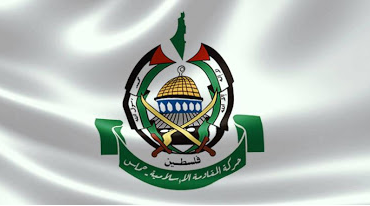Written by Richard Millett
Last night at SOAS in London another journalist came to the rescue of Israelis when Donald Macintyre – contributor to the Guardian and The Independent’s former Jerusalem correspondent – said he wanted his new book Gaza: Preparing for Dawn to be translated into Hebrew. He said that while Israeli intelligence has a good idea about the situation in Gaza “the Israeli public” didn’t which was made worse by Israeli journalists being banned from Gaza in 2006.
This reminds me of Tariq Ali’s “The end of Israel would benefit all Israelis.” Thank goodness for these wise men who can help the Israeli people!
Maybe Macintyre is unaware that Israelis have access to the internet and even have TV and radio.
He was speaking to the London Middle East Institute as well as the Centre for Palestine Studies, which are both based at SOAS.
He said his book was written to “challenge the myths” about Gaza. For example, that Arafat got a good deal at Camp David and that Israel had left Gaza in 2005 (because it still retains control over Gaza’s airspace and waters).
Another “myth” was that “the settlers’ installations had been destroyed by the Palestinians” after Israel withdrew. Macintrye said that there had been some looting but that it was “quickly brought under control” and there had been a successful harvest that year.
However, he said, only 4% of the harvest was able to leave Gaza with the remainder rotting or being sold on Gaza’s markets “at knock down prices”.
Macintyre said that Hamas were “a relatively pragmatic Islamist regime”. He also said that the conditions imposed on Hamas after their election win in 2005 were impossible for Hamas because they would overturn their “raison d’etre”.
He didn’t tell us what this “raison d’etre” was but judging by the wording in their 1988 Charter Hamas’ “raison d’etre” is to murder Jews and annihilate Israel.
But Macintyre only has sympathy for Hamas. He said that while there was “brutality on both sides” during the civil war between Hamas and Fatah “Hamas thought they were going to become victims of a coup which was a big factor in the ruthless way they took over.”
During the Q&A I asked Macintyre whether he thought Gazans were honest when he interviewed them for his book especially considering the brutality he had just described.
Macintyre replied that “Gaza is not a police state”, “people criticise Hamas like they criticise any local government”, “Hamas are not ISIS”, that the small Christian community is “protected” and Hamas’ Mahmoud Zahar meets the Christians there.
As for the Palestinians generally Macintrye said that their building of tunnels was “testament to their hard work and ingenuity” (so “ingenious” that many children die building them, something Macintyre didn’t mention).
Macintyre also took issue with a 2005 apparent change in the IDF’s military ethos which, he claimed, prioritised the lives of Israeli soldiers over Palestinian civilians pursuant to an article by Asa Kasher and Amos Yadlin.
During the Q&A Jonathan Hoffman challenged Macintyre on this. Jonathan, citing Colonel Richard Kemp, said that during Operation Cast Lead in 2008/2009 the ratio of Palestinian civilian to combatant casualties was approximately 1:1 which is “the lowest ever” and that Israel won’t attack if it sees Palestinian civilians in the line of fire.
Macintyre immediately tried to knock this statistic down by claiming that B’Tselem and the UN has different figures, but he showed that he really has no interest in proper discussion about civilian casualties during war when he simply blurted out that 1:1 is “still a hell of a lot of casualties.”
The manner in which Macintyre almost beautifies Hamas is vile and sickening, but one has to ask how his book about Gaza can be trusted when the book’s interviewees know that dissent could lead to Hamas-style justice: summary execution.
…
Editor’s Note:
On Jan. 28th, we amended the headline, replacing the word “Hamas” with “Gaza”, after Mr. Macintyre clarified to us that he was referring to “the commercial smuggling tunnels which flourished under the Gaza border largely between 2008 and 2015”. However, the point is a narrow one, as the tunnels in question were encouraged and taxed by Hamas, used for both consumer goods and military materials, and generally seen as part of the “resistance”.



